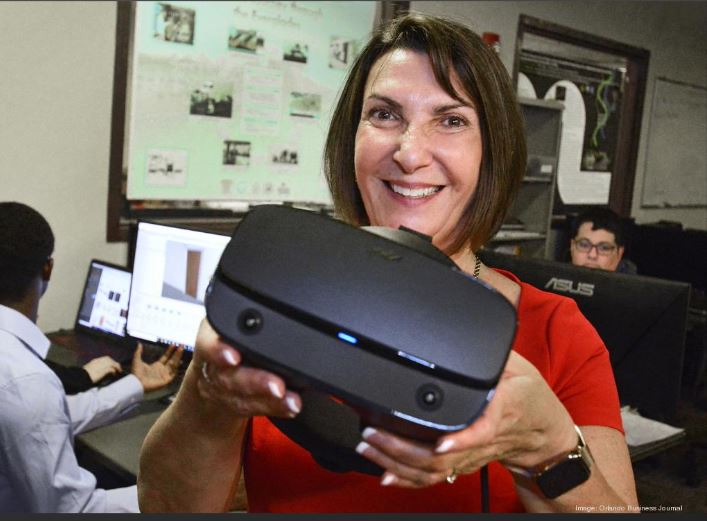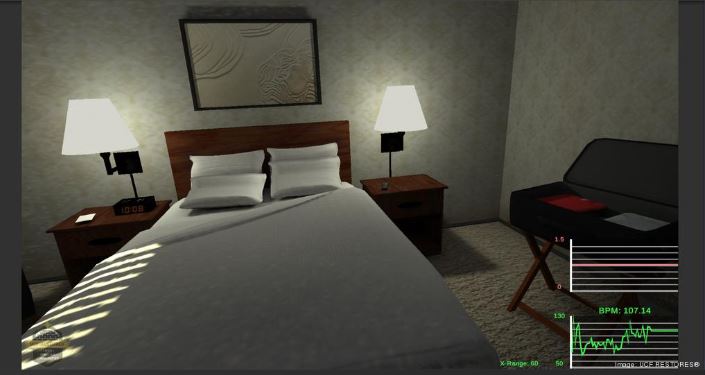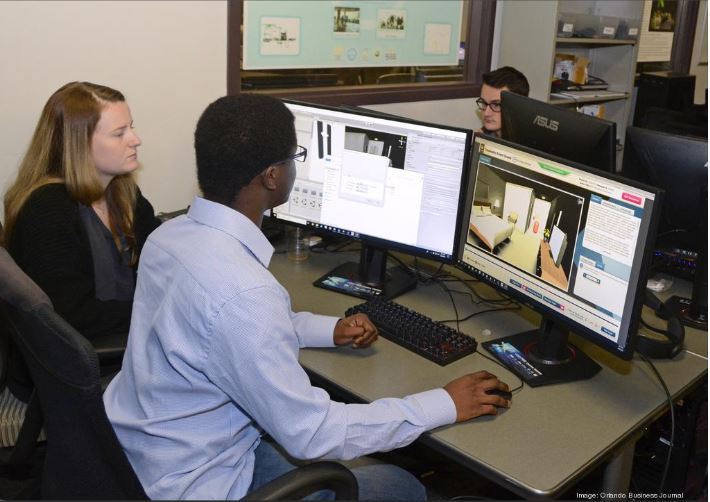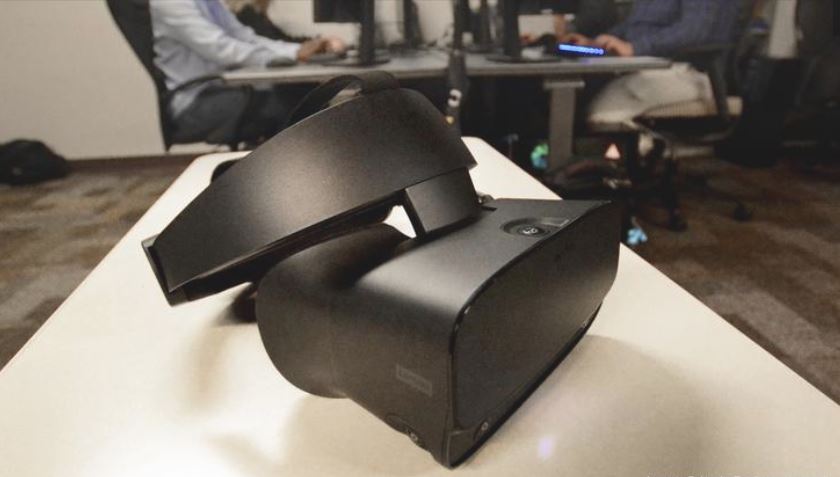UCF Restores, a clinical research center at the University of Central Florida that specializes in the treatment of post-traumatic stress disorder (PTSD), is set to launch therapy programs in three U.S. military installations this fall. The “pop-up” treatment programs are funded by a 2018 $10 million grant provided by the U.S. Department of Defense.
UCF Restores will establish iterations of its successful, three-week intensive outpatient program at the Dwight D. Eisenhower Army Medical Center in Georgia, Naval Medical Hospital Portsmouth in Virginia and Marine Corps Base Camp Lejeune in North Carolina.
The clinical research center uses traditional exposure therapy methods with virtual-reality technology. Patients are fully engrossed in their traumatic experiences through immersive virtual-reality goggles.
The goal is to have a patient disassociate triggers linked with the visual, audible, and olfactory memories that stimulate anxiety, said Deborah Beidel, founder of UCF Restores.
Patients are seen at UCF Restores’ clinic five days a week during a three-week intensive outpatient program. Otherwise, patients can elect to see therapists and clinicians once or twice a week. All the treatment is offered for free. For individuals coming from out of state, the only cost is attributed to housing and travel.
However, “everyone who has trauma cannot come to Orlando,” Beidel said.
To make the treatments more accessible, the research center is developing its own virtual-reality software program that will sell for $5,000 compared to the $30,000-$35,000 programs currently on the market. The prototype, being developed by the UCF Institute for Simulation & Training and the UCF Nicholson School of Communication & Media, is set to be completed by the end of August or September.

Aside from veterans, UCF Restores extends its therapy to first responders, including cops and firefighters,as well as shooting survivors and sexual assault survivors.
The U.S. Department of Defense first helped launch the center in 2011 with a $5.1 million endowment fund to implement a PTSD treatment program for Iraq and Afghanistan army veterans. Although the center’s origins are rooted in the treatment of combat war veterans, the patient pool began to diversify more dramatically after the 2017 Pulse nightclub mass shooting and the 2018 Stoneman Douglas High School mass shooting.
To date, the research center has raised more than $20 million from federal and state sponsors. If the programs prove to be successful in treating PTSD in veterans at the military installations, the U.S. Department of Defense will continue to fund UCF Restores, starting with another $2 million endowment.

Chloe West, a therapist at UCF Restores, sees patients between the ages of 18-80. “Virtual reality takes treatment to the next level,” West said. She also splits her time at UCF Restores’ second clinic in Brevard County that opened in Cocoa last year.
The research hub also currently operates out of St. John’s Episcopal on South John Young Parkway. There are plans to be expand services to the Episcopal Church of Jesus of Nazareth on Willow Drive. “We want to respond to the needs of the community.” Beidel said. Job creation will be a huge part of that, she said. The average salary of full-time staffers ranges around $60,000, however that number rises based on degree and experience.
As UCF Restores’ presence grows both in and out of the state, Beidel wants to start an initiative to train clinicians on how to practice virtual reality infused exposure therapy. If the treatment is executed inappropriately, it could worsen PTSD, she said.
The 3-week intensive outpatient program only has a 2% dropout rate compared to a 28% average dropout rate seen in treatment programs run by the U.S. Department of Veterans Affairs. There is also a 1% relapse rate. Roughly 500 veterans and active duty personnel have passed through UCF Restores as well as 225 first responders.
Mass shooting victim numbers remain undisclosed. “I’ve seen what the bullet of an AR-15 does to the arm of a 15-year-old girl,” Beidel said. “I never want to see that again.”
Outside of Florida, UCF Restores most recently worked with shooting survivors from the Las Vegas concert shooting in 2017.

Pat Scanlon, a 66-year-old retired firefighter from Clearwater, first started treatment at UCF Restores’ main clinic in October of last year. Eight years into retirement, traumatic memories of fires involving children began to haunt him. The guilt of not saving a child’s life in a 1982 apartment fire pushed Scanlon into a deep depressive state. After contemplating suicide and losing an ex-comrade to suicide, Scanlon began seeking help. “UCF Restores saved my life.”
He refers to his therapist, Yemanja Krasnow, as his guardian angel. “I’m not proud of it. I did not ask for it. But if telling my story will help someone, I tell it.” For Scanlon, UCF Restores was willing to offer services for retirees. Most of the programs he looked into were exclusive to active firefighters.
Today he is back in the workforce, selling equipment devices to fire stations.
The biggest economic impact the program can make, aside from creating high-wage jobs in the region, is getting people over their trauma so they can re-enter the workforce, Beidel said. When highly trained first responders retire because of trauma, it costs a city time and money, she added.
